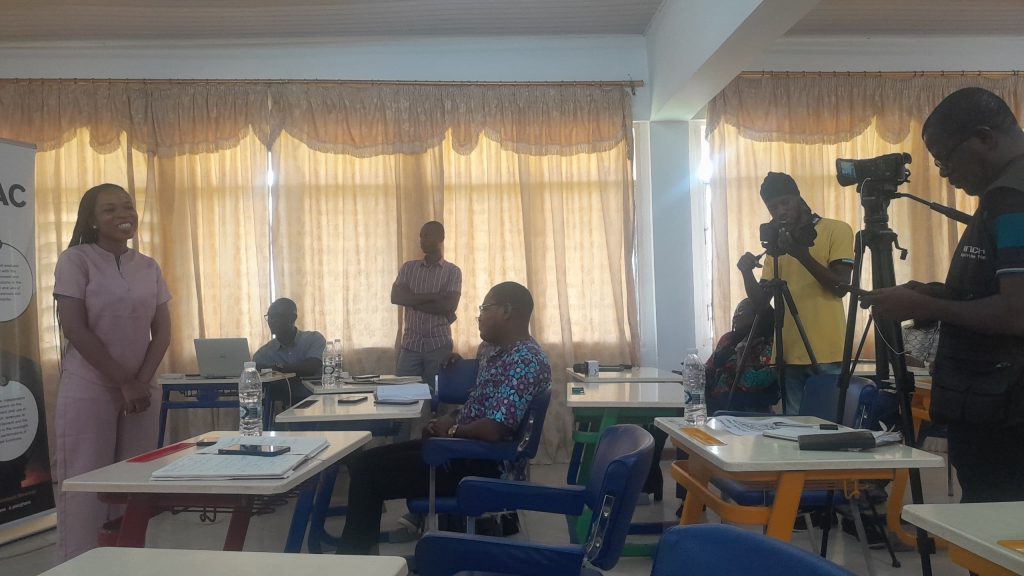By Prince Acquah
Cape Coast, Nov. 19, GNA – The Public Interest and Accountability Committee (PIAC) is pressing government to demonstrate actual commitment to its industrialisation agenda by allocating more petroleum revenue to build industries to drive growth.
The 2024 PIAC semi-annual report indicates that government failed to disburse any revenue to the sector in the first half of the year, even though industrialisation is selected as a priority area for funding with petroleum revenue.
Indeed, it is observed from the report that government’s commitment to industrialisation has been waning constantly with revenue allocation dwindling consistently since 2020 when it selected the sector as a priority area.
In 2020, a total of 31,800,000, representing 1.15 per cent of the total Annual Budget Funding Amount (ABFA) was allocated to industrialisation.
The amount went down to 16,262,699.33 (0.87 per cent) in 2021, diminished further to 9,285,080.76 (0.20 per cent) in 2022 before plummeting to 5,816,350.68 (0.11 per cent) in 2023.
And in the first half of 2024, from the total of GHS3,030,533,991 disbursed for development in four priority areas, no amount was allocated to industrialisation.
For the period spanning 2023 to 2025, government has selected agriculture including fisheries, infrastructure and service delivery in education and health, roads, rails, and other critical infrastructure, as well as industrialisation as priority areas to be funded with oil revenue.
Mr Isaac Dwamena, Coordinator for PIAC, briefing journalists in the Central Region on the report, expressed disquiet over the situation and emphasised the need for government to pay special attention to the sector.
He described industrialisation as a major growth pillar which generated employment, raked in taxes, and expedited development.
“There are factories to be built, and work must be done. If government has selected industrialisation as a priority area and zero petroleum revenue goes there, it means we are not prioritising building factories,” he said.
“Watermelon is produced all over the country. Can we not build a watermelon factory in one of the places where we produce so much watermelon? Do we mean that we cannot use the petroleum revenue to build a pineapple factory?” he queried.
The Committee’s engagement with the media formed part of a day’s tour to inspect projects being funded with petroleum revenue in the Komenda-Edina-Eguafo-Abrem Municipality Asikuma-Odoben Brakwa District.
Mr Dwamena lauded the media for its role in the progress made by the Committee and pledged PIAC’s commitment to making information available to the media to empower them to carry out their duties effectively.
PIAC reported that crude oil production for the first half of 2024 increased by 10.7 per cent as compared to a decline of 13.2 per cent in the same period in 2023 and attributed it to the improvement primarily to the Jubilee South East (JSE) project.

The total petroleum receipts for the period increased by 55.6 per cent from US$540,456,124.27 in the first half of 2023 to 840,765,265.80 in the first half of 2024 mainly due to increased production for the period, the report added.
For his part, Odeefour Amoakwa Boadu VIII, the Vice Chairman of PIAC and President of the Central Regional House of Chiefs, urged the Ministries Finance and Fisheries to ensure the immediate completion of the Anomabo Fisheries College and get it running.
He said the college was a critical institution which would maximise the benefit Ghana derived from sea in the fisheries sector.
“It is of worry to us, and we wish that government will prioritise this university for the Central Region and make sure that they get admissions started for people to enroll and start studying at the university as soon as possible,” he pleaded.
GNA